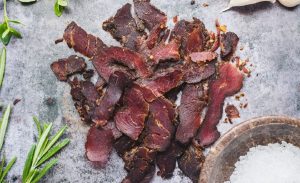Ntando Thukwana – BusinessInsider.co.za.
 A new export deal between South Africa and the Kingdom of Saudi Arabia will see local beef producers ship off up to 1,000 tons of meat to the Middle Eastern country as early as next year, according to a leading local supplier of beef products.
A new export deal between South Africa and the Kingdom of Saudi Arabia will see local beef producers ship off up to 1,000 tons of meat to the Middle Eastern country as early as next year, according to a leading local supplier of beef products.
The deal will make Saudi Arabia one of South Africa’s largest beef export markets, said Louw van Reenen, CEO of Beefmaster Group, supplier of specialist beef products to local and international markets.
The beef industry, which according to the South African Red Meat Producers’ Organisation, exports 4% of its beef production, will get a boost from the Saudi Arabian market entry.
“We are very excited about the deal, and it could not have come at a better time. Besides unlocking new trade, it will also help us maintain job security of the sector over the next year,” Van Reenen said.
Beefmaster exports products to nations like the United Arab Emirates (UAE), Kuwait, Jordan, Oman and Qatar, amongst others.
The red meat supplier will host Saudi Arabia officials from its Food and Drug Authority later in the year at its Kimberley and Christiana facilities, in a visit that is set to ensure the meat products conform to the country’s specifications.
While South Africa already exports some produce to Saudi Arabia, local farmers will now be able to export fresh produce and contribute to total bilateral trade between the two countries, which amounted to R66 billion in 2021.
A memorandum of understanding (MoU) between the two governments in the fields of agriculture, fisheries and aquaculture was signed between the Minister of Agriculture, Land Reform and Rural Development Thoko Didiza and the Minister of Industry and Mineral Resources Al-Khorayef, respectively.
The two nations signed a series of 16 additional agreements worth more than R270 billon including the meat deal – other deals were signed in the renewable energy, industry, mining, tourism, and logistics sectors.
The meat export deal comes just as the industry emerges out of foot-and-mouth disease outbreaks that led to Didiza’s cattle movement ban two months ago.
“We are well positioned to offer a product that is affordable, known for quality, and has less fat content. We compete very favourably with other beef nations like Australia and the USA precisely because of these characteristics.”



